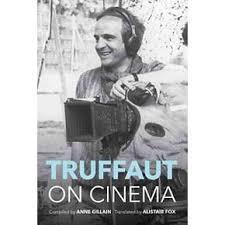A critic before he became a filmmaker, Truffaut had launched an attack on the establishment in the March 1954 issue of the journal Cahiers du Cinema, dismissing in aggressive terms the tradition de qualité in the French film industry. His main targets were the presiding directors and screenwriters, so inferior, in his account, to their American counterparts. In the work of Orson Welles, Howard Hawks, John Ford and, above all, Alfred Hitchcock, the personality of the “film-author” – the auteur – beamed through the screen. “I know that many Americans are surprised that European cinephiles – and the French in particular – regard Alfred Hitchcock as [an auteur], in the sense that the term is applied to . . . Jean-Luc Godard”, Truffaut writes in the introduction to Hitchcock, a heavily illustrated series of conversations recorded in 1962 (Truffaut’s French questions were relayed in English by his faithful assistant, Helen Scott). First published in France in 1983, it is issued in the UK for the first time in a “revised edition”. Thus the auteur came to prominence in France as a stray kid with a dubious background, rather like Truffaut’s own, who had drifted in from Hollywood. Truffaut would have been happy to make the kid communicate solely by mood, light and movement (“I believe in Charlie Chaplin”). Films, to his mind, originated in images rather than ideas. Since the kid had to speak, he spoke in French, but throughout his career Truffaut founded his films on goods imported from across the Atlantic, periodically indulging a desire to make them wholly or in part in English.
Research and publish the best content.
Get Started for FREE
Sign up with Facebook Sign up with X
I don't have a Facebook or a X account
Already have an account: Login
Reviews, essays, interviews, poems, awards, author profiles, podcasts, and more
Curated by
bobbygw
 Your new post is loading... Your new post is loading...
 Your new post is loading... Your new post is loading...
|










